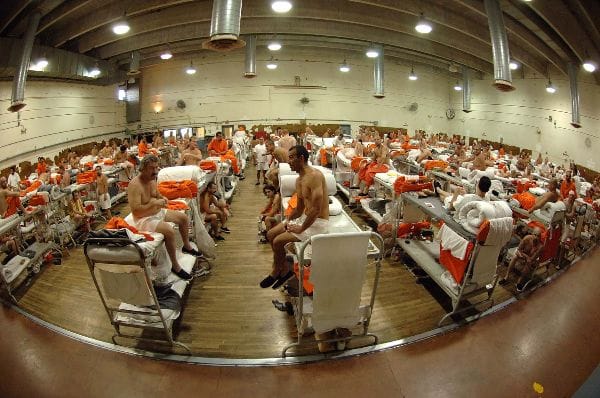Changes in Three Strikes Law Reform California Prison System

Credit: http://www.sanquentinblog.com/

Tuesday, Californians voted for a three-strikes law reform, while a proposition to abolish the death penalty failed in the state. While the state will undergo changes in sentencing for repeat offenders, the death penalty remains on the books, with over 700 inmates on death row.
California's controversial three-strikes law mandated that anyone with two conviction on their record could be sentenced to life upon committing their third felony of any type. This includes theft, robbery, or burglary and up until 2011, could be applied legally to shoplifting. Passed in 1994 in response to the kidnapping of Polly Klaas by a repeat offender, California's three-strikes law was the most unforgiving interpretation of the law in the country. Up until Tuesday, California was the only state to demand life-sentencing upon a third felony, regardless of whether or not that crime was violent.
According to Ballotpedia, 8,800 inmates in California's prison system were serving a sentence under the harsh "three-strikes" law as of June 2011.
Despite legal challenges, the three-strikes law has remained intact up until this point, marking the significance of the passage of Prop. 36.
"Legally speaking, it's a modest change in the three-strikes law, but politically speaking, it's a monster change," says Adam Gelb, director of the Public Safety Performance Project at the Pew Center on the States.
With 68.6% of voters in favor of Proposition 36, the ballot measure revises the controversial life sentence aspect of the law, imposing life sentence only when the new felony conviction is "serious or violent." It also allows offenders previously sentenced under three-strikes and currently serving life sentences to appeal for re-sentencing if their third conviction was not serious.
Voters in California did not, however, reform the death penalty, with 52.8% of Californians voting against the "End the Death Penalty Initiative." If passed, Proposition 34 would have abolished the death penalty by replacing it with life-imprisonment without the possibility of parole. It would have also applied retroactively to people on death row.
According to California's Legislative Analysts's assessment, Prop. 34 would have likely saved the state an estimated $100 million annually, as a result of "net savings to state and local governments related to murder trials, appellate litigation, and state corrections."
Despite failure to pass the initiative, attitudes surrounding capitol punishment in the state of California are shifting. Former Los Angeles District Attorney Gil Garcetti remarks,
"Look at how many voters in 1978 passed the death penalty law that's in effect today. That's 71 percent. Now we're down to 53 percent in favor of the death penalty," Garcetti says. "They'll come over, so it's a matter of time, that's what it is."
Also transforming California's criminal justice system, the 2011 realignment plan shifts nonviolent offenders from state prisons to county jails. In an attempt to create a more cost-effective system, the realignment plan means county jails will see a large increase in inmates. Since the October 2011 implementation of the shift, prison population in California has dropped more than 16 percent. County jails, however, are not intended for long term stays and lack the facilities of state prisons, deepening the problems California's prison system face.
It remains unclear how the passage of Prop. 36 and the failure of Prop. 34 will affect the June 2013 deadline to decrease prison population to 110,000 inmates set in place by the realignment.



